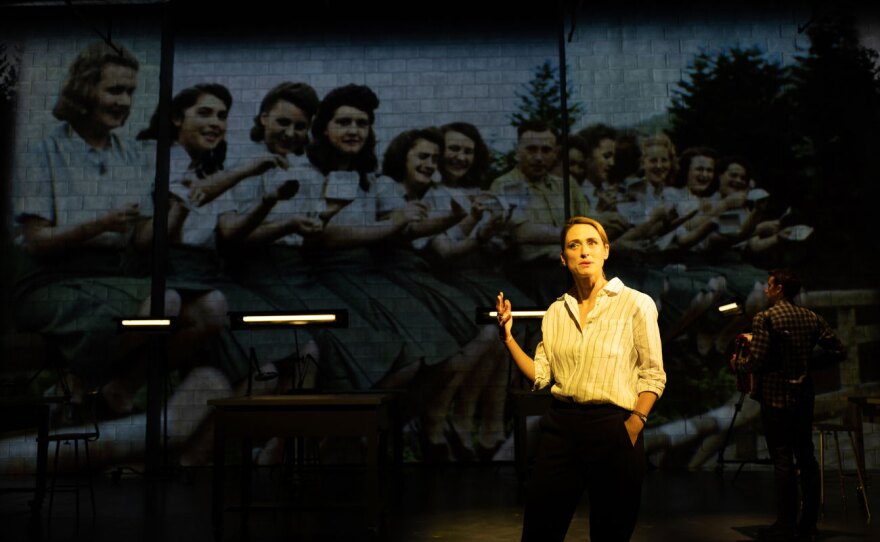In 2007, a photo album made its way to the desk of a young archivist at the United States Holocaust Memorial Museum.
That album's mysterious, surprising contents — and that archivist's subsequent detective work — are the subject of a new play from New York's Tectonic Theater Company and La Jolla Playhouse
"Unlike other materials that the museum had received, this thing, this document, this collection of photographs have no prisoners, show not a single inmate. It merely shows the officers, the SS personnel who ran the concentration camp Auschwitz," said Amanda Gronich, who co-wrote the play "Here There Are Blueberries" with Tectonic Theater Project founder Moisés Kaufman.
Many of the pictures are taken at Solahütte, a holiday resort within the camp's boundaries that borders the Sola River. The photographs show the Nazi staff — guards, officers, secretaries — relaxing. It's an unsettling, disturbing contrast to the horrors taking place nearby in the prisoner compounds at Auschwitz.
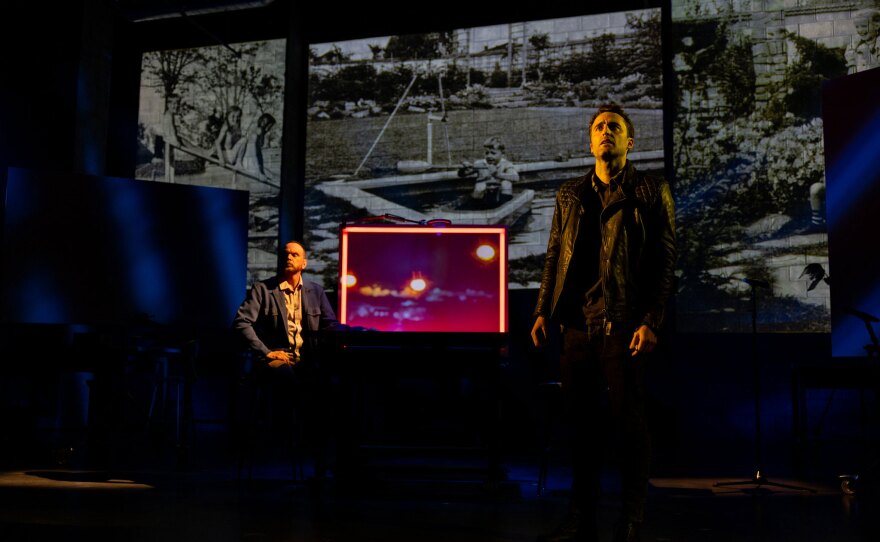
"Dr. Rebecca Erbelding saw it, and she immediately recognized that there was something that they hadn't seen before, which is that it portrays the daily lives of the people who ran the largest concentration camp ever built," Kaufman said. "It was a look behind the scenes."
For the team at the Holocaust museum, the album raised many questions.
"An entire journey of the investigation begins into what is this collection of photographs. How did it come into being? Who did it belong to? Who gathered all the pictures together? And who are the various personnel pictured, featured in these photographs?" Gronich said.
The play follows the true story of Rebecca Erbelding and the team at the United States Holocaust Memorial Museum, as she set out to figure out who the people were — and while the story focuses on these modern day historian-detectives, the album is part of the production, too. The play calls for the use of projections to give audiences their own relationship with the photographs.
After the album was delivered, the story made international headlines. When Kaufman — Tectonic's founder, and also the director of this production — read about Erbelding and the photo album in the New York Times, he contacted her and interviewed her about the two years of her life spent trying to uncover the secrets of the album, working alongside historians from around the world and the museum's photographic curator Judy Cohen.
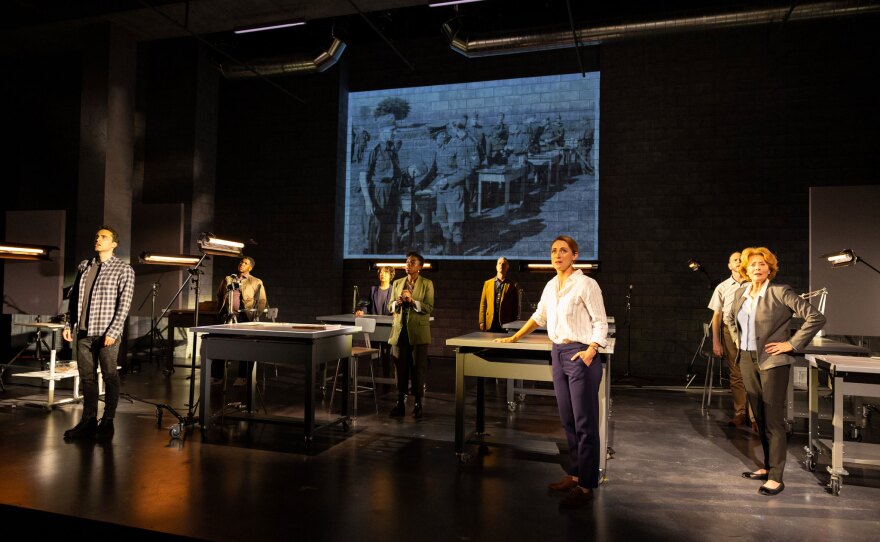
"When Moisés described the beginnings of his work in that epic interview with Rebecca and I looked at the photographs myself, I realized how extraordinary the story was," Gronich said. "It was such an incredible opportunity and deeply moving to me personally, not only to work again with Moisés, which was an absolute dream to come back to him, but also just finally to take on this subject matter as a Jewish writer."
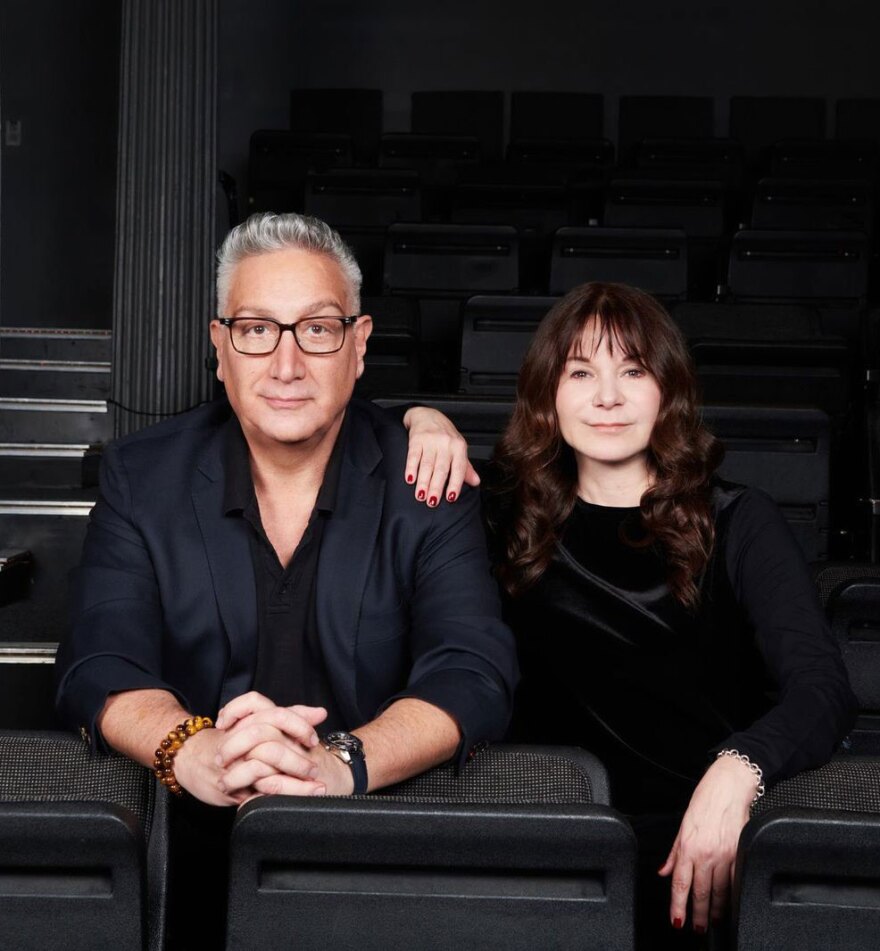
In writing the play, Kaufman and Gronich leaned into Tectonic's signature (trademarked) use of "Moment Work" to tell this story and capture the mystery of the album. Moment Work enlists all the elements of the stage from the beginning of the creative process: lighting, costuming, sound, set design and architecture and actors.
"We write performance, so to speak, on its feet as we work in a room," explained Gronich. It's an active, evolving and engaged way of telling and understanding a complicated, collaborative story, and how the writers were able to pull off a fast-paced mystery on such a sensitive topic.
"Here There Are Blueberries" works with incredibly complicated material; tackling the real lives of Nazi guards and workers is a daunting task.
"Our play is not exonerating. It is not forgiving," Gronich said. "As one of our characters says, the Holocaust did not happen in a passive voice. People actively determined to do this."
Erbelding and her colleagues identified some of the people in the photographs — before the war they had everyday jobs, like bankers or confectioners.
Kaufman said that historians' approaches to the Holocaust are transforming. "There is also a great interest now in the perpetrators, and how did they do what they did, and how did they become what they became," Kaufman said.
"A daunting question is: Is there anything that we can add to the body of knowledge about the Holocaust? I think that the only reason why I felt allowed to return to this material was because the album, in effect, reveals something that has not been revealed before," Kaufman said. "We know a lot about the Holocaust, but can we look at it through this different lens, of the images in the album?"
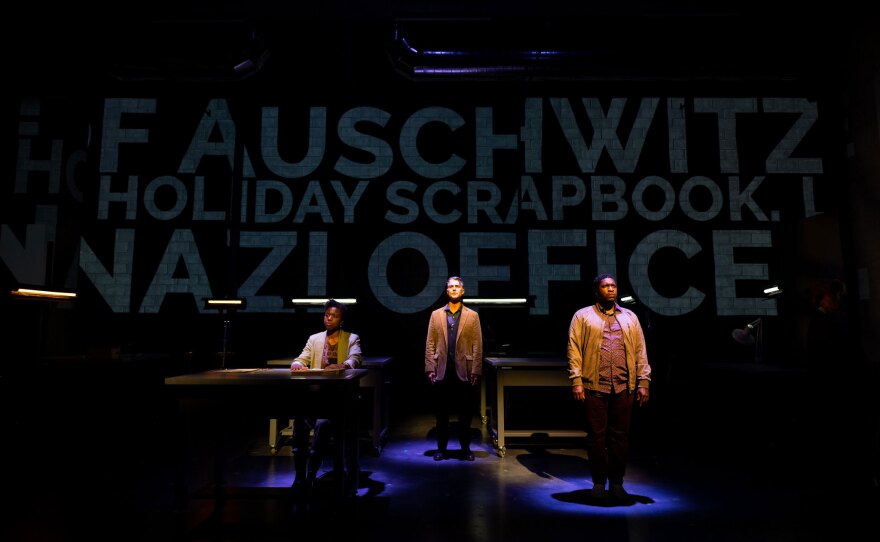
Tectonic Theater Project is known for 2000's "The Laramie Project," based on the 1998 murder of Matthew Shepard and the impact on the LGBTQ+ community. The production was staged within two years of Shepard's murder.
With "Here There Are Blueberries," some 80 years have passed between source material and play. But timeliness is still on the playwrights' minds.
"Listen, it would be a wonderful thing if this play had no relevance to contemporary events, history as it is unfolding today. It would be wonderful if this play felt like a footnote to history," Gronich said. "It is an ongoing issue and concern for all of us that we try to prevent such things from happening again."
'Here There Are Blueberries'
- Add to Google Calendar
- Add to Outlook Calendar
Download ICS file

